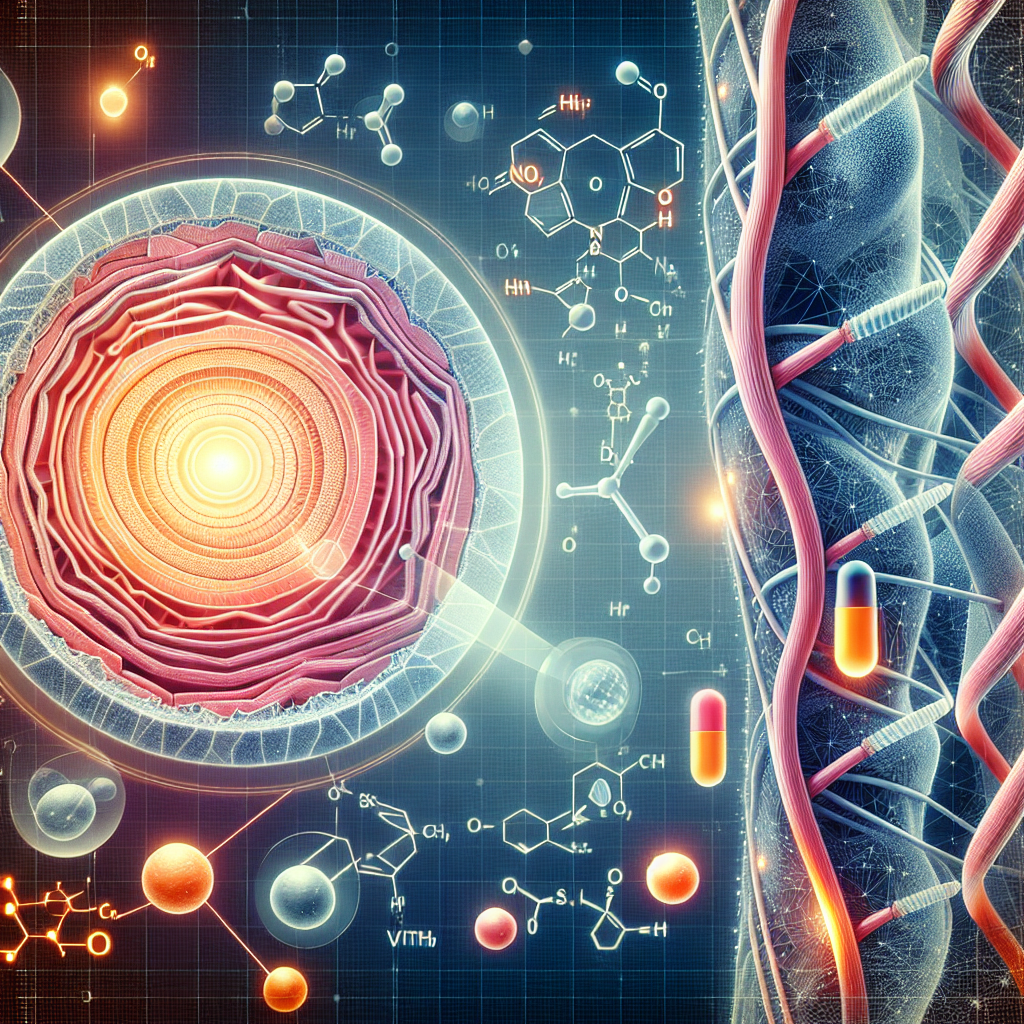The Science Behind Vitamins and Skin Elasticity

Discover the science behind vitamins and skin elasticity! Learn how the right vitamins can enhance your skin’s health and youthfulness. Visit My Vibrant Vitality now to start your journey towards vibrant, elastic skin.
The Role of Vitamins in Maintaining Skin Elasticity: A Scientific Perspective
The science behind vitamins and skin elasticity is a fascinating field of study that has garnered significant attention in recent years. As we age, our skin naturally loses its elasticity, leading to the formation of wrinkles and fine lines. However, research suggests that certain vitamins can play a crucial role in maintaining skin elasticity, thereby slowing down the aging process.
Vitamins are organic compounds that our bodies need in small amounts to function properly. They are essential for various bodily functions, including maintaining skin health. The skin, being the largest organ of the body, is often the first to show signs of vitamin deficiency. Dryness, wrinkles, and loss of elasticity are common symptoms of inadequate vitamin intake.
Vitamin C, also known as ascorbic acid, is one of the most important vitamins for skin health. It is a potent antioxidant that protects the skin from damage caused by free radicals, unstable molecules that can damage cellular structures. This protection helps to preserve the skin’s elasticity and prevent premature aging. Moreover, vitamin C is essential for the synthesis of collagen, a protein that gives the skin its firmness and elasticity. As we age, our bodies produce less collagen, leading to sagging skin and wrinkles. By boosting collagen production, vitamin C can help to maintain skin elasticity and reduce the signs of aging.
Vitamin E is another powerful antioxidant that can help to maintain skin elasticity. It works in tandem with vitamin C to protect the skin from damage caused by free radicals. In addition to its antioxidant properties, vitamin E also has moisturizing effects that can help to keep the skin hydrated and elastic.
Vitamin A, or retinol, is another key player in skin health. It promotes the production of new skin cells and helps to repair damaged ones, thereby maintaining the skin’s elasticity. Moreover, vitamin A has been shown to stimulate the production of collagen and elastin, two proteins that are essential for skin elasticity.
Vitamin B3, also known as niacinamide, is a lesser-known vitamin that has been gaining recognition for its role in skin health. It has been shown to improve the skin’s elasticity and texture, reduce redness and inflammation, and even out skin tone.
While these vitamins can be obtained from a balanced diet, they are also available in topical skincare products. Applying these vitamins directly to the skin can provide more immediate benefits, as they are absorbed directly into the skin cells. However, it’s important to note that while vitamins can help to maintain skin elasticity, they are not a magic bullet. A healthy lifestyle, including a balanced diet, regular exercise, and adequate sleep, is also crucial for maintaining skin health.
In conclusion, the science behind vitamins and skin elasticity is a rapidly evolving field that holds great promise for the future of skincare. Vitamins C, E, A, and B3, in particular, have been shown to play a crucial role in maintaining skin elasticity and slowing down the aging process. By understanding the role of these vitamins in skin health, we can make more informed choices about our skincare routines and overall health.
Understanding the Science: How Vitamins Contribute to Skin Elasticity

The science behind vitamins and skin elasticity is a fascinating field of study that has garnered significant attention in recent years. As we age, our skin naturally loses its elasticity, leading to the formation of wrinkles and fine lines. However, research has shown that certain vitamins can play a crucial role in maintaining and even improving skin elasticity, thereby slowing down the aging process.
Vitamins are organic compounds that our bodies need in small amounts to function properly. They are essential for various bodily functions, including growth, digestion, and nerve function. Some vitamins have antioxidant properties, meaning they can protect our cells from damage caused by free radicals, unstable molecules that can harm cellular structures. This protective function is particularly important when it comes to skin health, as free radical damage can accelerate the aging process, leading to premature wrinkles and loss of elasticity.
One of the key vitamins in this regard is vitamin C. This water-soluble vitamin is well-known for its antioxidant properties. It plays a crucial role in the production of collagen, a protein that gives our skin its elasticity. As we age, our bodies produce less collagen, leading to sagging skin and wrinkles. However, by boosting our intake of vitamin C, we can stimulate collagen production and help maintain our skin’s natural elasticity.
Vitamin E is another essential nutrient that can help improve skin elasticity. Like vitamin C, vitamin E has strong antioxidant properties. It helps protect the skin from damage caused by free radicals and environmental factors such as UV rays and pollution. Moreover, vitamin E has been shown to enhance skin moisture, which can further improve elasticity.
Vitamin A, meanwhile, is crucial for cell growth and differentiation. It is involved in the production of fibroblasts, the cells responsible for developing tissue that keeps skin firm and healthy. A deficiency in vitamin A can lead to dry, rough skin, while adequate intake can help maintain skin elasticity and overall health.
Finally, vitamin B3, also known as niacin, has been found to improve skin elasticity significantly. It works by increasing fatty acid levels in the skin, which helps to retain moisture and improve elasticity. Additionally, niacin has anti-inflammatory properties that can help soothe irritated skin, further contributing to a healthy, youthful appearance.
In conclusion, the science behind vitamins and skin elasticity is both complex and fascinating. Vitamins C, E, A, and B3 all play crucial roles in maintaining and improving skin elasticity, offering a natural way to combat the signs of aging. However, it’s important to remember that while vitamins can contribute significantly to skin health, they are just one piece of the puzzle. A balanced diet, regular exercise, adequate sleep, and proper skincare are all equally important in maintaining healthy, elastic skin. As always, it’s best to consult with a healthcare professional before starting any new supplement regimen.
Vitamins and Skin Health: The Scientific Connection Explained
The science behind vitamins and skin elasticity is a fascinating field of study that has garnered significant attention in recent years. As we age, our skin naturally loses its elasticity, leading to the formation of wrinkles and fine lines. However, research has shown that certain vitamins can play a crucial role in maintaining and even improving skin elasticity, thereby slowing down the aging process.
Vitamins are essential nutrients that our bodies need to function properly. They play a vital role in various biological processes, including cell growth, immune function, and metabolism. In the context of skin health, vitamins are particularly important because they help to maintain the integrity of the skin barrier, protect against environmental damage, and promote skin cell regeneration.
One of the key vitamins associated with skin elasticity is vitamin C. This water-soluble vitamin is a potent antioxidant that helps to neutralize harmful free radicals in the skin. Free radicals are unstable molecules that can damage cells and contribute to aging and diseases. By neutralizing these molecules, vitamin C helps to prevent the breakdown of collagen, a protein that gives skin its elasticity. Moreover, vitamin C is also involved in the synthesis of collagen, further contributing to its role in maintaining skin elasticity.
Another important vitamin for skin elasticity is vitamin E. Like vitamin C, vitamin E is a powerful antioxidant that protects the skin from environmental damage. It also has anti-inflammatory properties, which can help to reduce skin inflammation and promote healing. Furthermore, vitamin E helps to moisturize the skin, which can improve its elasticity and reduce the appearance of wrinkles and fine lines.
Vitamin A is also crucial for skin health. It promotes the production of new skin cells and helps to repair damaged skin. Retinol, a form of vitamin A, is often used in anti-aging skincare products because of its ability to stimulate collagen production and improve skin elasticity. Additionally, vitamin A has antioxidant properties that can protect the skin from free radical damage.
Lastly, vitamin D plays a role in skin health as well. It is involved in skin cell growth and repair, and it can help to reduce inflammation in the skin. Some studies have also suggested that vitamin D may help to improve skin elasticity, although more research is needed to confirm these findings.
In conclusion, vitamins play a crucial role in maintaining and improving skin elasticity. They help to protect the skin from environmental damage, promote skin cell regeneration, and stimulate collagen production. Therefore, incorporating these vitamins into your skincare routine can help to keep your skin looking youthful and healthy. However, it’s important to remember that while vitamins can contribute to skin health, they are not a substitute for a healthy lifestyle. Regular exercise, a balanced diet, and adequate sleep are also essential for maintaining healthy skin.
The science behind vitamins and skin elasticity is a rapidly evolving field, and future research will undoubtedly uncover even more about the complex relationship between these essential nutrients and our skin’s health. For now, though, it’s clear that vitamins play a vital role in keeping our skin elastic, resilient, and youthful-looking.